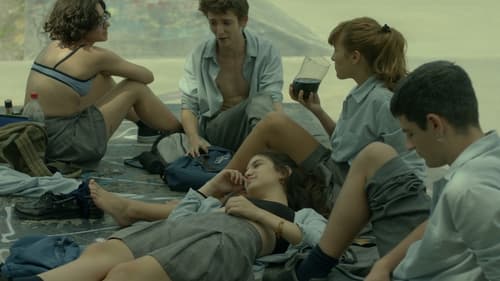
It is no coincidence that the second feature by Argentinian Melisa Liebenthal begins with a quote from “Duino Elegies” by Rilke, who was concerned with existential angst. And, more prosaically, Marina, the film’s young protagonist, is faced with similar anxiety. In fact, her problem is her face. One morning, she discovers her face has changed, and she can no longer recognise herself. Not even her mother can, who bumps into her on the street and says hello to her like she would to any stranger (deadpan, surreal humor is part of the film’s recipe). Marina is thus forced to confront her identity: who is she? Is she determined by her parent’s DNA or by her ID card? Can she be identified by a family portrait, by biometrics or the love of those around her, including her Colombian boyfriend? Is she prettier now?

Pablo
When her grandmother becomes seriously ill, Camila is forced to move to Buenos Aires, leaving behind a liberal public high school for a scholastic, traditional private institution. Suddenly a senior without any friends, and with her single mother caught up in family affairs; Camila's fierce yet immature temperament is put to the test as she deals with the jarring change of scenery, and the alluring set of possibilities and experiences that lie in wait in the big city.

Nahuel
어느 여름날, 마르셀라의 언니가 갑자기 세상을 떠났다. 슬픔 속에서 마르셀라는 언니의 유품을 정리해야 하는 고통과 마주한다. 이때 도움의 손길을 건네온 딸의 친구 나초는 뜻밖의 안식처가 된다. 서로의 관계가 발전함에 따라 이들은 함께 자동차 여행을 떠나거나 모험을 즐기기도 한다. 힘들고 혼란스러운 시기 속 마르셀라의 과거와 현재는 결국 뒤엉키게 되고, 급박히 밀려드는 일상의 압박 속에서 그녀는 스스로를 향한 질문을 던진다.

